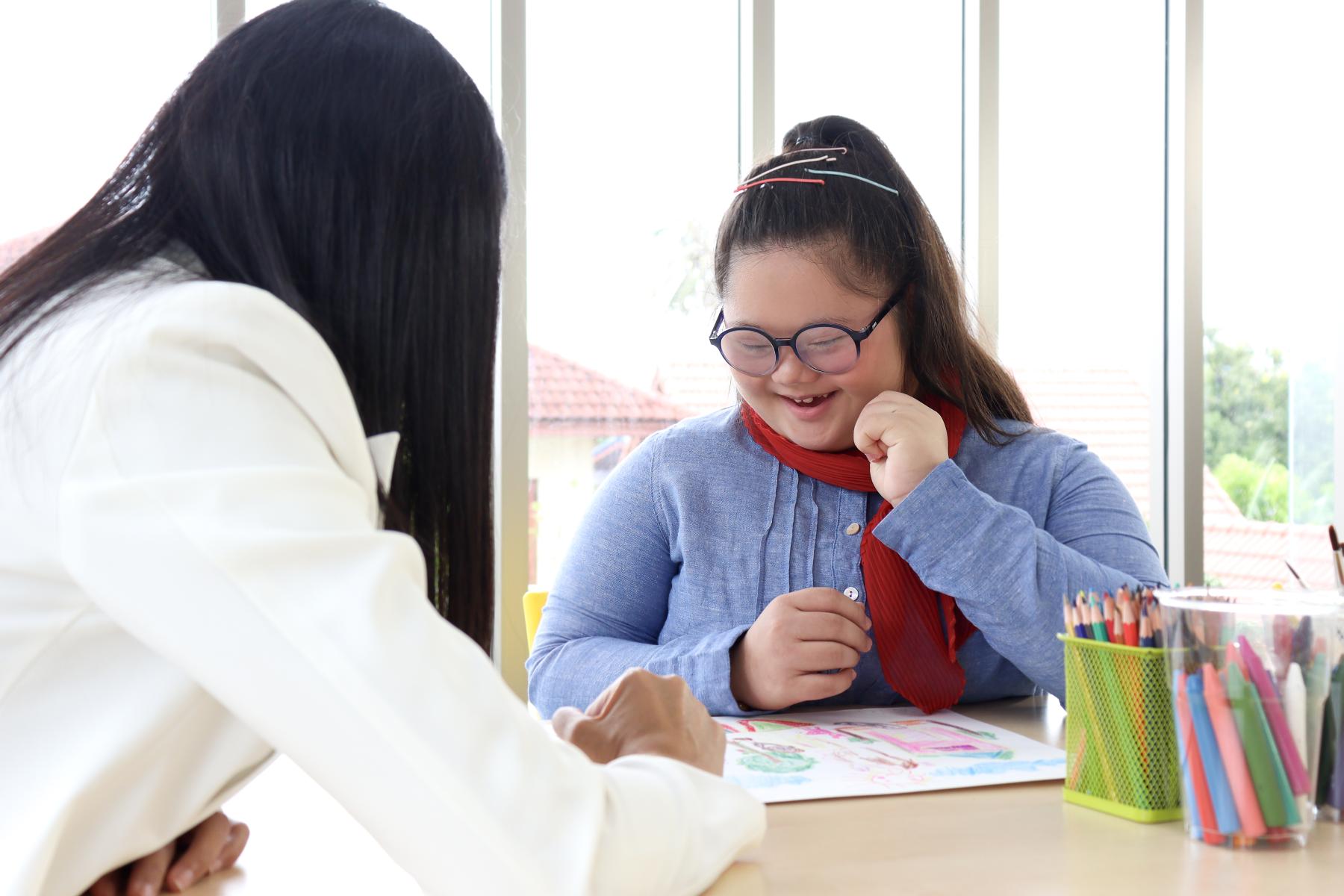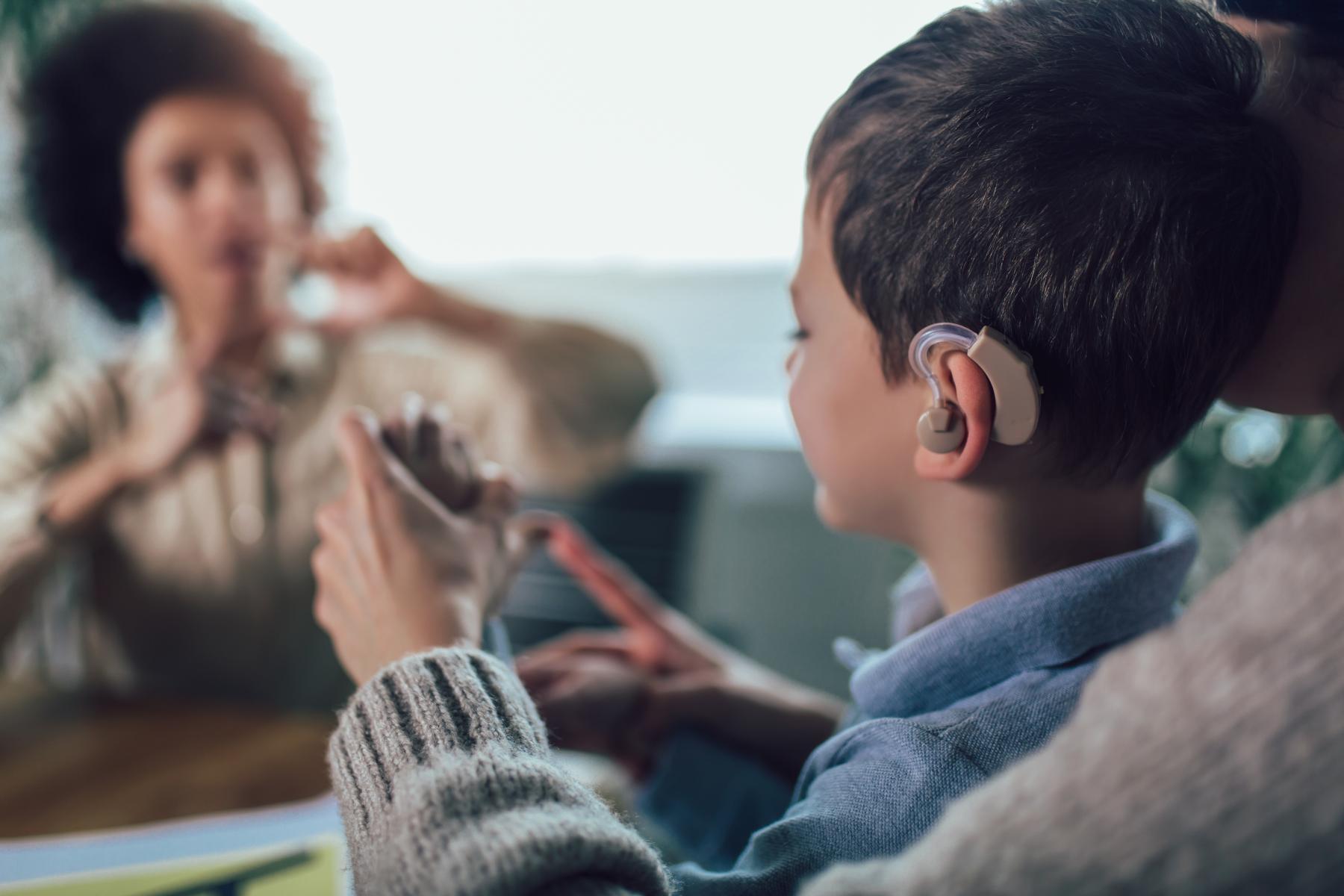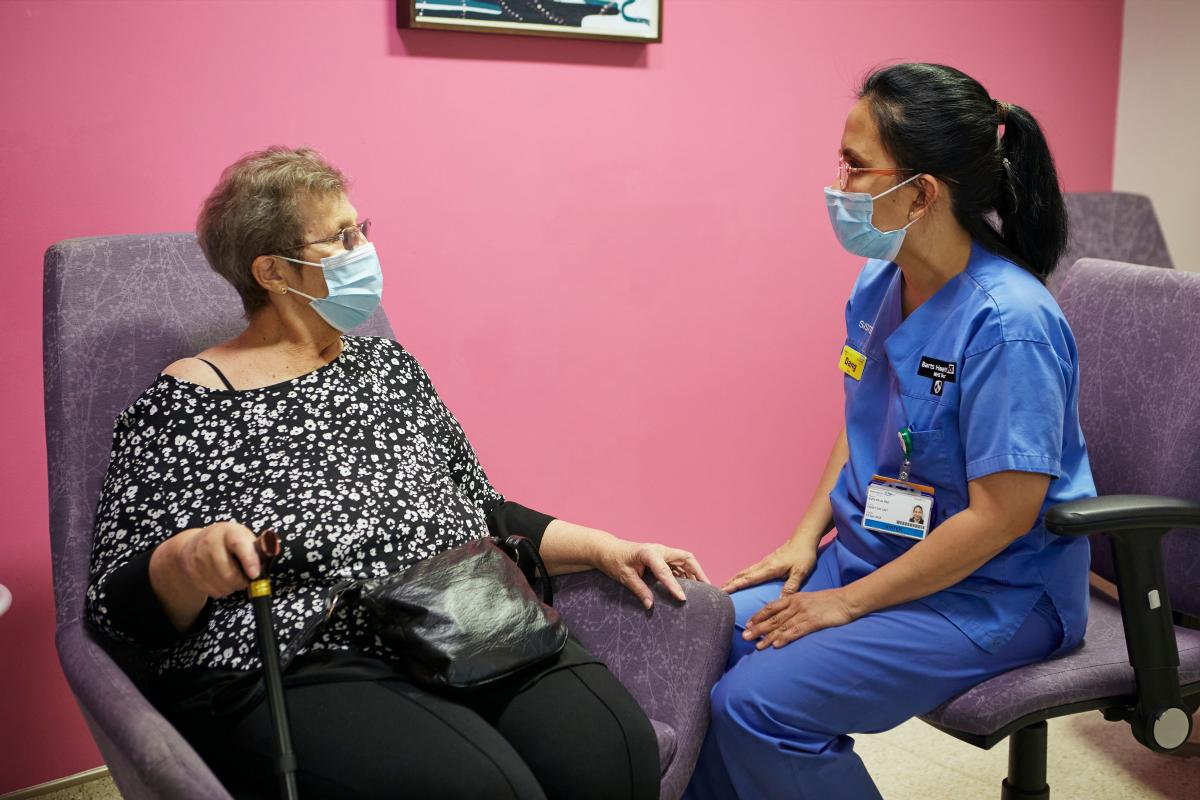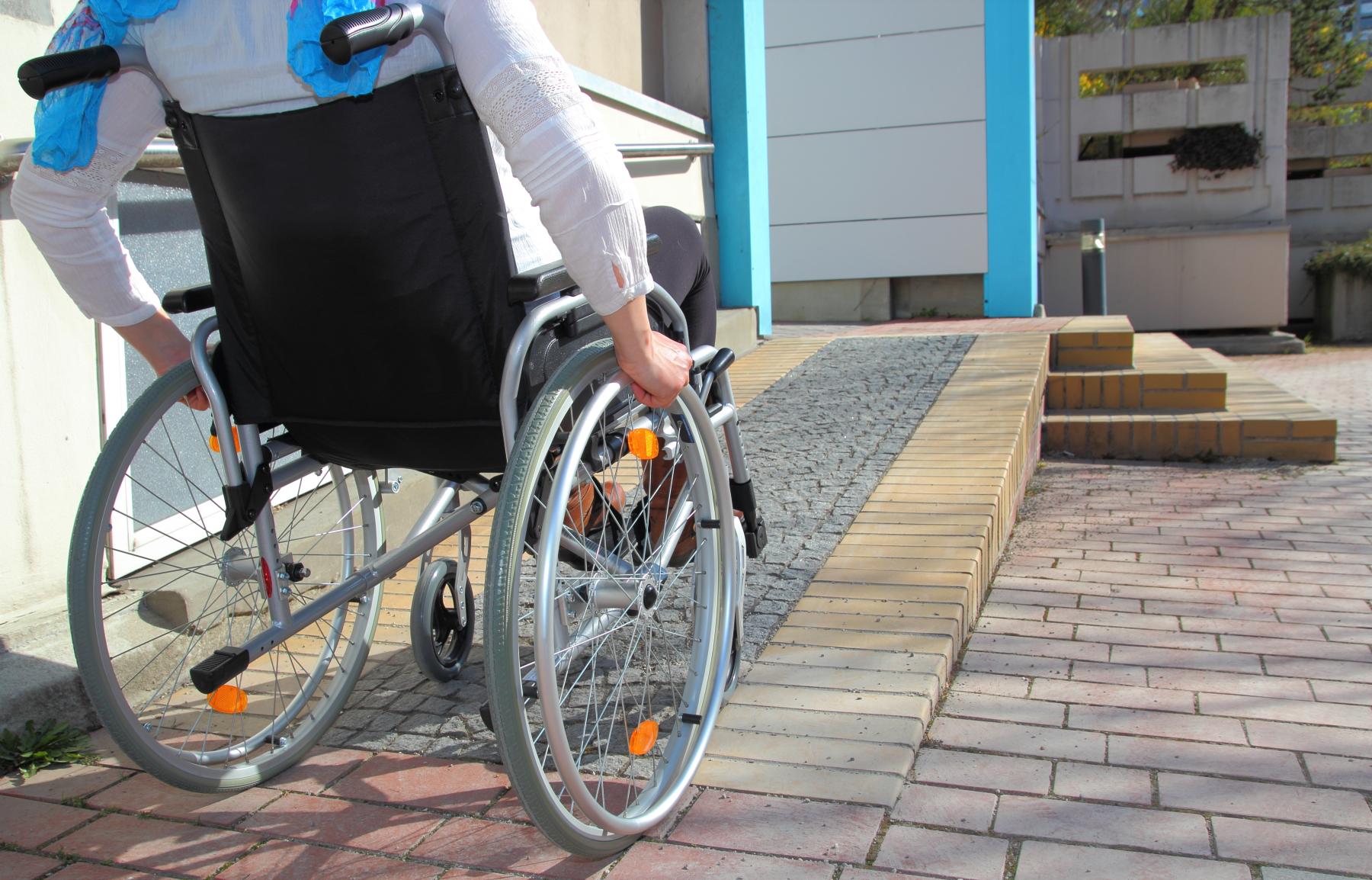Meeting your accessibility needs

Coming to hospital if you have a learning disability

Supporting patients with a learning disability
Extra help to make your visit easier
- You can use a Hospital passport[pdf] 3MB, completed by you and your carer, to share important information about your needs.
- Our dedicated learning disability team can give advice and support before or during your hospital visit.
- The A&E at The Royal London Hospital is the first in London to be accredited by the National Autistic Society, showing our commitment to accessible care.
Email our learning disability team for advice and support
Or call the team on 02035946928, Monday to Friday (excluding Bank holidays), 9am to 5pm.
Communicating in a way that works for you

Using British Sign Language (BSL)
Face-to-face and video support when you need it
We offer BSL interpreters in person and video relay via SignLive to support your care.
Specialist support is available at:
You can also drop in to the audiology clinic (first floor, clinic 4) at The Royal London Hospital, open Monday–Friday, 9am–4pm.
Hearing aid repairs are by appointment only.
Arranging advocacy support

Arranging interpreting support
Help in your language, in person or by phone
If you need an interpreter, please let the reception team in your ward or clinic know before your appointment.
We can arrange face-to-face support in:
- Bengali
- Cantonese
- French
- Gujarati
- Hindi
- Polish
- Romanian
- Russian
- Somali
- Sylheti
- Turkish
- Urdu
- Vietnamese
If an interpreter cannot be there in person, we can set up telephone interpreting on the day. This service is available all day, every day.
we have worked with AccessAble, the UK’s leading provider of detailed disabled access information, to create detailed access guides to our hospitals.

AccessAble guides
Detailed access information for all our hospitals
Everyone’s accessibility needs are different. That’s why we’ve worked with AccessAble, the UK’s leading provider of access information, to create detailed guides to our hospitals.
These guides include information on parking, entrances, lifts, toilets, and more — helping you plan your visit with confidence.
Learning disabilities: your questions answered
Is there a learning disability team at Barts Health?
Yes, we work across all our hospitals that support adults during their inpatient admission. We will regularly review your family member to ensure that they are receiving the appropriate care.
Can I stay with my family member while they are on an adult ward?
Yes, the wards can support family to stay at bedside with their family member, this includes overnight. We will do our best to provide you with a recliner chair or carers bed. The team will speak to you about your needs.
Can my family member’s paid carers stay with them on the adult ward?
Yes, we welcome carers to help support patients while they are admitted. Carers can be social care funded or continuing health care funded. Funding would have to be agreed first by either social care or continue health care first. Please do inform the hospital staff if there is a care package in place.
My family member has a care package in place.
If your child/family members has a care package in place, please tell us. This helps us support discharge to ensure care packages are correct and in place.
What if my family member’s paid carers cannot support in hospital?
Your family member would be assessed on the ward for the level of support they will need. If they are deemed to need 1:1 support, this can be supplied by the hospital. We support and encourage an individual’s own carers to support whenever possible due to familiarity.
Do I have to only visit during appointed visiting hours?
We support flexible visiting for family and paid carers of individuals with learning disability. We recognise that there may be specific areas where extra support is needed – for example around meal times. We occasionally have parents and/or paid carers staying 24 hours.
Is there learning disability support in outpatients?
Yes, our team can offer support with appointments. This can be within the actual appointment itself or to ensure that the department is aware of your family members attendance and if any specific adjustments are needed (e.g. quieter waiting area, longer appointments). As we are a very small team, we need to prioritise patients that most need our support.
I am worried how my family member/myself will be perceived if I am staying with them on the ward.
We recognise that it can be difficult transition from children services to adult services, and if you experience any negative comments/feelings, please do not be afraid to voice these and escalate to the nurse in charge or the ward managers. You can also let our team know and we can support.
What is a hospital passport?
A Hospital passport [pdf] 3MB is a document that has been created to help support individuals with a learning disability while they attend hospital. It helps give the teams looking after your family member information on how they present when well, what help they day to day help is needed, how they communicate and any support with medication/medical interventions.
Will I be able to have a side room?
Side rooms are always in high demand within the hospital for lots of different reasons. The highest priority is for patients who are infectious so they cannot spread infection to others. If there is a need for a side room for your family member, please speak to the clinical team. Side rooms however cannot always be guaranteed.
What is mental capacity?
This is your family member's ability to understand and use information to make a decision regarding their care and treatment and communicate any decisions made. The Mental Capacity Act is a law and applies to everyone over the age of 16 years old. Someone may lack capacity if their mind is impaired in some way meaning they are unable to make a decision themselves. A Mental Capacity Assessment would be completed. If someone lacks capacity a decision would be make in their best interest by the treating team involving family members.
What is a best interest decision?
If your family member is assessed to lack capacity to make a decision about care and treatment a best interest decision would be made. This is a joint decision that would involve family, doctors and other professionals involved in your family member's care.
At what age will my child be admitted into an adult ward?
At 16 and 17 children can be admitted into adult wards. This is a case-by-case decision and will be discussed with doctors before any choices are made.
We recognise that family carers play a vital and increasing role in our society.
The NHS Constitution and the NHS Commitment to Carers recognise the importance of carers, and the need to ensure you are seen as partners in care, and often experts in the knowledge you bring about your family member.
By working together in partnership we recognise we can deliver an improved experience and better outcomes for your family member and yourself.

